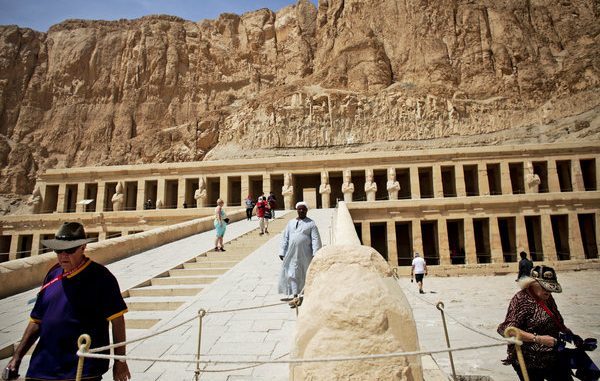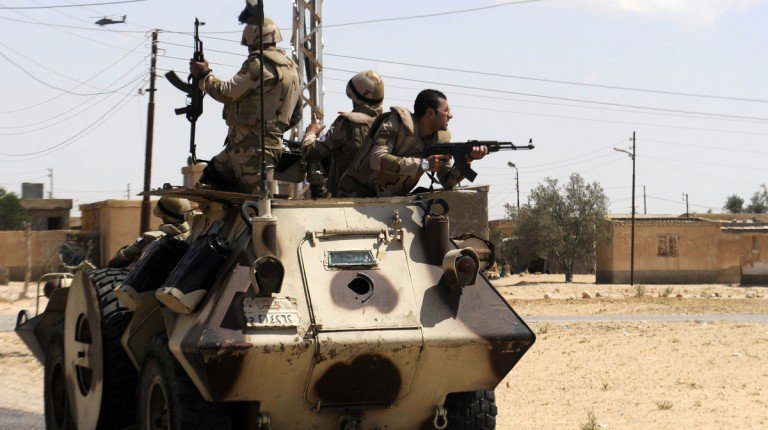
Tarek Amer, the governor of the Central Bank of Egypt (CBE) told a parliament’s economic committee that foreign exchange revenues from tourism has declined from $11 billion in 2011 to $3.4 billion in 2016.
In the parliament meeting, Amer also said that the deficit in the current account of the balance of payments increased from $4 billion in 2010 to $20 billion in June 2016 which represented a danger which the CBE had to interfere to control, and that is why it took the decision to free float the exchange rates.
Moreover, he noted that Egyptian exports also fell from $24 billion in 2010 to $19 billion in 2016 while imports increased from $49 billion in 2010 to $57 billion in 2016, this gap has negatively affected the balance of payments.
Egypt’s tourism is one of the major sources of foreign currency in the country, that suffers from an economic crisis due to the shortage of foreign currency. The number of tourists fell 40% in the first quarter of 2016.
Tourism revenues have fallen as result of security instability in Egypt after the military coup in 2013 against Egypt’s first democratically elected President Mohamed Morsi.
Sinai Province, a group affiliated to the Islamic State (ISIS),launched massive attacks against Egypt’s police and armed forces in Sinai.
In October 2015, Sinai Province has claimed their responsibility for downing a Russian passenger jet killing all 224 people on board.
As a result, both the British and Russian governments banned their airlines from traveling to Sharm AL-Sheikh for security concerns which had negative repercussions on tourism in Egypt.
In addition, Egypt received another major blow in May when an Egypt Air plane crashed into the Mediterranean, killing all 66 people on board. The cause of the crash is still unknown.
Last December, a bomb blast has killed at least 25 people and injured nearly 49 others during Sunday mass inside a Cairo church near the main Coptic Christian cathedral, according to Egyptian state TV.
Security sources had said the blast was caused by a bomb containing at least 12 kg (26 pounds) of TNT detonated on a side of the church normally used by women.
Again the Islamic State’s Egyptian branch claimed responsibility for the attacks.
As a result, Egypt received another blow after the Foreign and Commonwealth Office (FCO) – a department of the government of the United Kingdom responsible for protecting and promoting British interests worldwide – has urged travelers heading to Egypt to be “vigilant” and “follow local advice”following the Coptic Christian attack.
In addition, FCO advised tourists not to travel to the Governorate of North Sinai “due to the significant increase in criminal activity and continued terrorist attacks on police and security forces that have resulted in deaths,” according to the FCO foreign travel advice statement.
The FCO also advised against all but essential travel to the Governorate of South Sinai too. However, this excludes the “area within the Sharm el Sheikh perimeter barrier”.
The FCO included the airport and the areas of Sharm el Maya, Hadaba, Maama Bay, Sharks Bay and Nabq.But said, “We advise against all but essential travel by air to or from Sharm el Sheikh.”
The FCO also advised against all but essential travel to the area west of the Nile Valley and Nile Delta regions – but this excludes the coastal areas between the Nile Delta and Marsa Matruh.
Furthermore, the FCO confirms that the current terror threat in Egypt remains high. It stated, “Terrorists continue to plan and conduct attacks. Further attacks are likely.”
“Most terrorist attacks target the security forces, but it’s likely that foreigners, including tourists will also be targeted.”
“Attacks could be indiscriminate and may occur without prior warning. There have been threats to western nationals, institutions and businesses posted n websites and social media.



